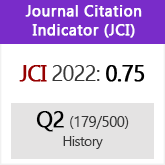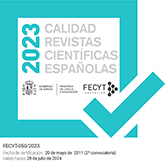The incidence of factional conflicts in the political life of Castilian towns at the end of the Middle Ages: the case of Cuenca
DOI:
https://doi.org/10.3989/hispania.2009.v69.i233.117Keywords:
Crown of Castile, Towns, Political conflicts, Factional struggles, Fifteenth century, Sixteenth centuryAbstract
A contribution to the study of political conflicts in Castilian towns at the end of the Middle Ages and the beginning of the Modern Age. The strong presence of the nobility, which was characteristic of the social and political structures of many Castilian towns, meant that inter-factional struggles were often of particular importance. On the basis of information provided by unpublished sources, the author shows that such inter-factional conflicts persisted without interruption in the town of Cuenca during the three first decades of the sixteenth century. He alludes to the main facts of the conflict, the composition of the factions, and the objectives that their leaders hoped to attain with their struggles.
Downloads
Download data is not yet available.
Downloads
Published
2009-12-30
How to Cite
Diago Hernando, M. (2009). The incidence of factional conflicts in the political life of Castilian towns at the end of the Middle Ages: the case of Cuenca. Hispania, 69(233), 683–714. https://doi.org/10.3989/hispania.2009.v69.i233.117
Issue
Section
Studies
License
Copyright (c) 2009 Consejo Superior de Investigaciones Científicas (CSIC)

This work is licensed under a Creative Commons Attribution 4.0 International License.
© CSIC. Manuscripts published in both the printed and online versions of this Journal are the property of Consejo Superior de Investigaciones Científicas, and quoting this source is a requirement for any partial or full reproduction.All contents of this electronic edition, except where otherwise noted, are distributed under a “Creative Commons Attribution 4.0 International” (CC BY 4.0) License. You may read here the basic information and the legal text of the license. The indication of the CC BY 4.0 License must be expressly stated in this way when necessary.
Self-archiving in repositories, personal webpages or similar, of any version other than the published by the Editor, is not allowed.














